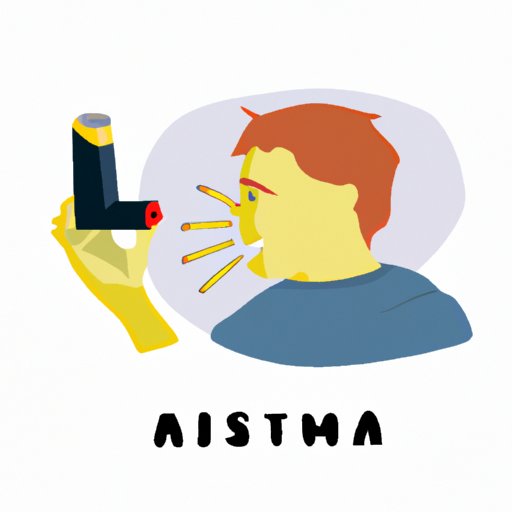
Introduction
Asthma is a chronic lung disease that causes inflammation and narrowing of the airways, making it difficult to breathe. It is a condition that affects people of all ages, and symptoms can range from mild to severe. While most asthma episodes are manageable with proper treatment, there is a risk of fatal asthma attacks. Fatal asthma attacks are rare, but they can happen. Understanding the risk is crucial for people living with asthma and their loved ones.
“A Silent Killer: What You Need to Know About Fatal Asthma Attacks”
A fatal asthma attack is a severe asthma episode that results in death. It can happen suddenly and unexpectedly or gradually over a few days. It is called a silent killer because it can occur without warning signs, but there are often symptoms that precede it.
The signs and symptoms of a fatal asthma attack are similar to those of a severe asthma episode, but they are more intense. They include:
- Wheezing, coughing, and shortness of breath that worsens quickly
- Difficulty speaking due to shortness of breath
- Chest tightness or pressure
- Bluish or grayish lips or fingernails
- Severe anxiety and restlessness
- Rapid breathing (tachypnea)
- Rapid heartbeat (tachycardia)
If you or someone you know is experiencing these symptoms, seek emergency medical attention immediately.
“Is Asthma Deadly? A Look Into the Risks and Realities”
Asthma-related deaths are rare, but they do occur. According to the Centers for Disease Control and Prevention (CDC), there were 3,168 asthma-related deaths in the United States in 2018. These deaths were mostly preventable with proper treatment and management.
The risk factors for fatal asthma attacks include:
- Not using asthma medication as prescribed
- Not having an asthma action plan
- Experiencing a severe asthma episode in the past
- Delaying seeking medical attention during an asthma episode
- Being exposed to asthma triggers, such as allergens and irritants
- Having a history of smoking
- Having a mental health condition, such as anxiety or depression
“How Asthma Can Lead to Tragic Consequences: Understanding the Dangers”
Asthma affects the body by causing inflammation and swelling of the airways, making it difficult to breathe. In severe cases, the airways can become completely blocked, which can lead to respiratory failure and death.
Potential complications of asthma include:
- Pneumonia
- Pneumothorax (collapsed lung)
- Respiratory failure
- Status asthmaticus (severe asthma episode that does not respond to treatment)
- Cardiac arrest
“The Severity of Asthma: Exploring Fatal Outcomes and Preventive Measures”
There are different levels of asthma severity, ranging from intermittent to severe persistent. Fatal asthma attacks are more likely to occur in people with severe persistent asthma, but they can happen to anyone with asthma.
Preventive measures for fatal asthma attacks include:
- Using asthma medication as prescribed
- Having an asthma action plan and following it
- Avoiding asthma triggers, such as air pollution, tobacco smoke, and allergens
- Knowing when to seek medical attention during an asthma episode
- Regularly monitoring lung function with a peak flow meter or spirometer
- Managing comorbidities, such as allergies or gastroesophageal reflux disease (GERD)
“When Breathing Becomes a Matter of Life or Death: Asthma Fatality Stories”
Real-life stories of individuals who have died from asthma serve as a reminder of the importance of taking asthma seriously.
One such story is that of 12-year-old Ryan Gibbons from the UK. Ryan had severe asthma and died in 2016 after experiencing a fatal asthma attack. Despite using his inhaler and receiving emergency medical attention, he passed away a few days later. Ryan’s parents now raise awareness about asthma and the importance of knowing the signs of a severe asthma episode.
“The Scary Truth About Asthma: Can You Really Die from It?”
In conclusion, while fatal asthma attacks are rare, they do occur. The risk factors for fatal asthma attacks include not properly managing asthma and being exposed to triggers. Understanding the dangers of asthma and the signs of a severe asthma episode is crucial for preventing fatal outcomes. If you or someone you know is experiencing asthma symptoms, seek medical attention immediately.
Conclusion
Asthma is a serious health condition that affects millions of people worldwide. While most asthma episodes are manageable with proper treatment and management, there is a risk of fatal asthma attacks. Understanding the risk factors and signs of a severe asthma episode is crucial for preventing fatal outcomes. It is essential to take asthma seriously and seek medical attention if experiencing symptoms. By taking these steps, individuals with asthma can live full and healthy lives.




